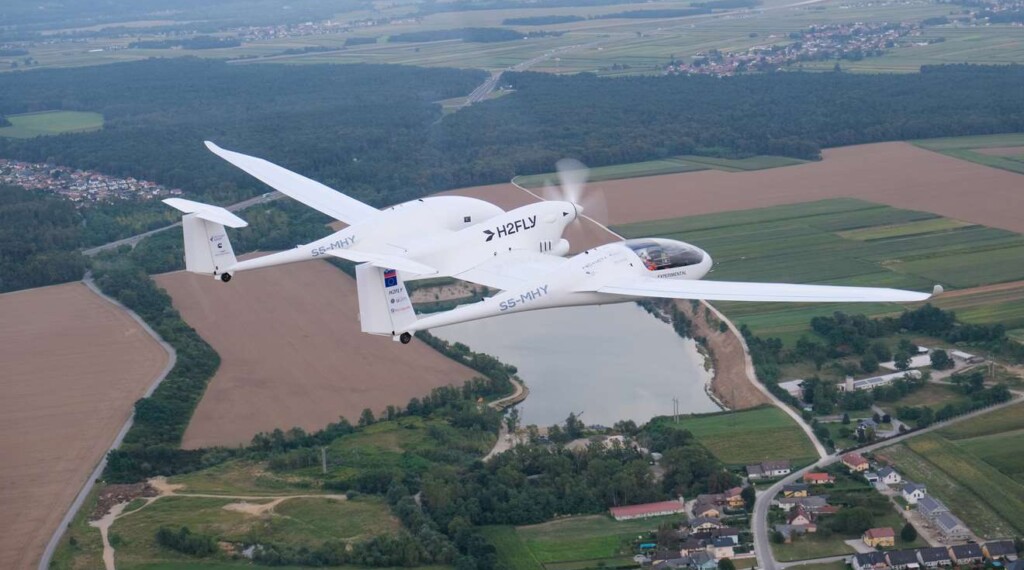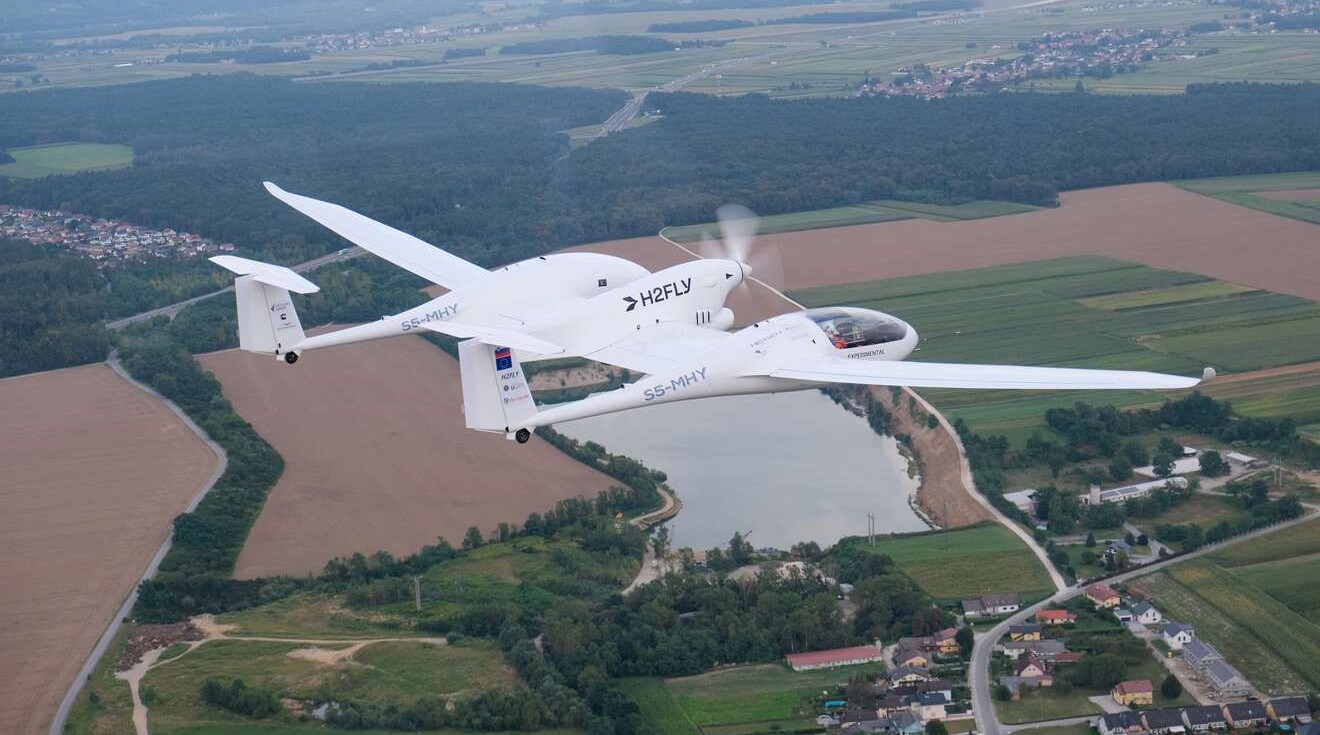begin quote from:
https://www.goodnewsnetwork.org/worlds-first-electric-aircraft-flight-powered-by-new-liquid-hydrogen-flew-for-3-hours/

The world’s first piloted flight of an electric aircraft powered by liquid hydrogen has taken place.
H2FLY, the Stuttgart Germany-based developer of hydrogen-electric powertrain systems for aircraft announced it has successfully carried out four flights from Maribor, Slovenia, powered by liquid hydrogen as part of its flight test campaign, including one flight that lasted for over three hours.
They believe the flights lay the foundation for long-range, emissions-free flight, with liquid hydrogen doubling the range of the HY4 aircraft to 932 miles (1,500km), compared to using gaseous hydrogen which is much heavier.
“Results of the test flights indicate that using liquid hydrogen in place of gaseous hydrogen will double the maximum range of the HY4 aircraft from 750 km to 1,500 km, marking a critical step towards the delivery of emissions-free, medium- and long-haul commercial flights,” the company said in a statement.
Over the last 12 months, GNN has kept abreast of all hydrogen electric flight milestones, as the liquid fuel is the only current option for decarbonizing aviation. In December, Rolls Royce and EasyJet successfully tested a hydrogen engine for a jumbo jet.
This year, Connect Airlines and Avia have both successfully flown aircraft using green hydrogen fuel, the latter onboard a 40-seater ATR 72-600 regional aircraft during a 15-minute FAA Airworthiness Certificate flight, and the former during a 10-minute flight with a 19-seat aircraft called the Dornier 228.
In May, GNN reported on a Concord-like supersonic jet under development that would use green hydrogen as its fuel source. The company Destinus is working with hydrogen because it’s much lighter than fossil jet fuel, and weight considerations are a key requisite for supersonic travel.
Now however, H2FLY’s piloted HY4 demonstrator aircraft fitted with a hydrogen-electric fuel cell propulsion system was able to conduct tests upwards of 3 hours of flight time, making the German company’s progress the outlier in the field of hydrogen aviation.
HYDROGEN IN OTHER FIELDS: World’s First 100% Hydrogen-Powered Trains Now Running Regional Service in Germany to Replace Diesel
Compared with pressurized gaseous hydrogen storage, H2FLY’s use of liquified, cryogenic hydrogen enables significantly lower tank weights and volume, therefore leading to increased aircraft range and useful payload.
“This achievement marks a watershed moment in the use of hydrogen to power aircraft,” said Professor Josef Kallo, co-founder of H2FLY. “We are now looking ahead to scaling up our technology for regional aircraft and other applications, beginning the critical mission of decarbonizing commercial aviation.”
WATCH the flight test conducted below…
SHARE These Milestones Coming Thick And Fast With Your Friends…

No comments:
Post a Comment